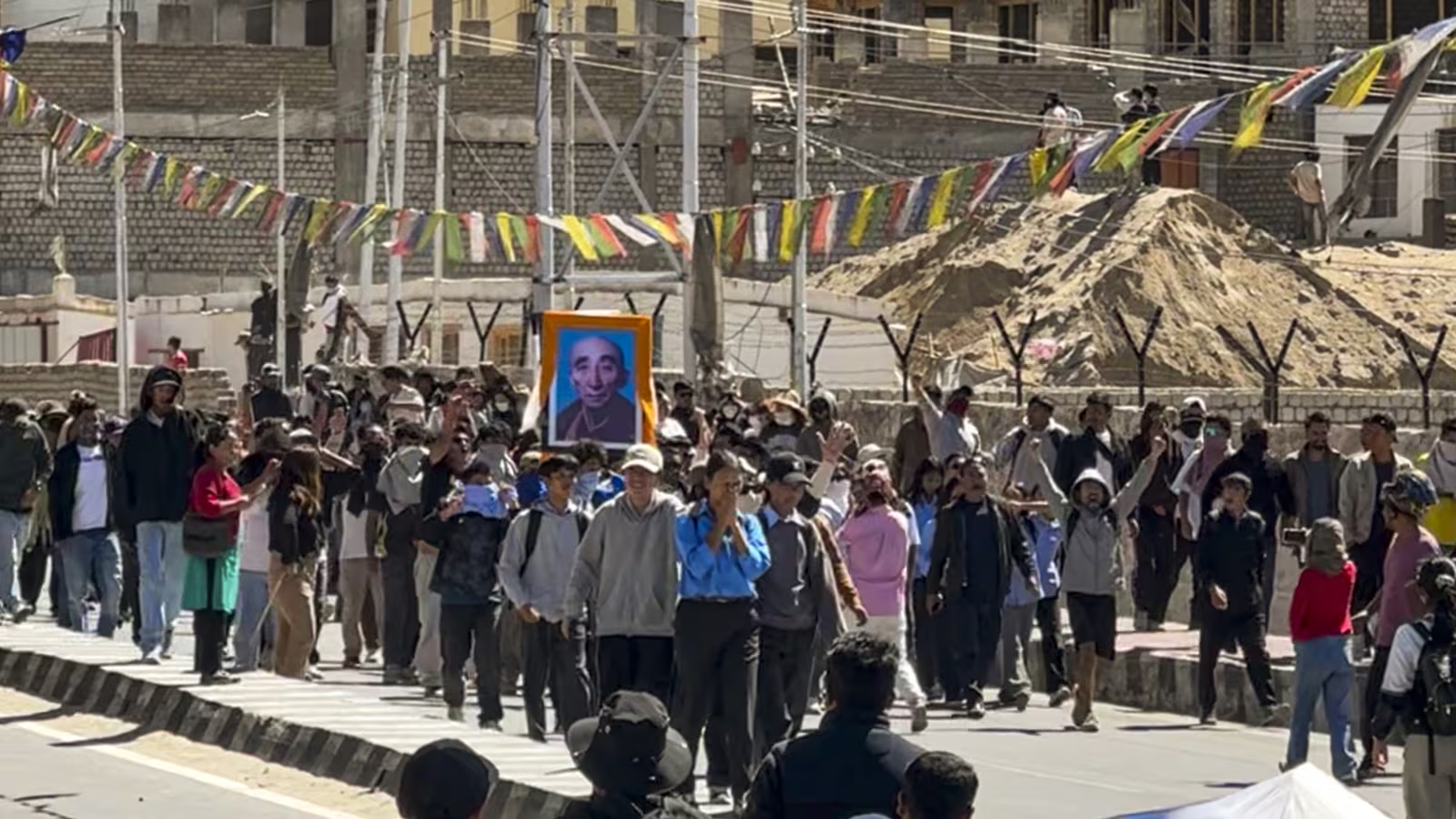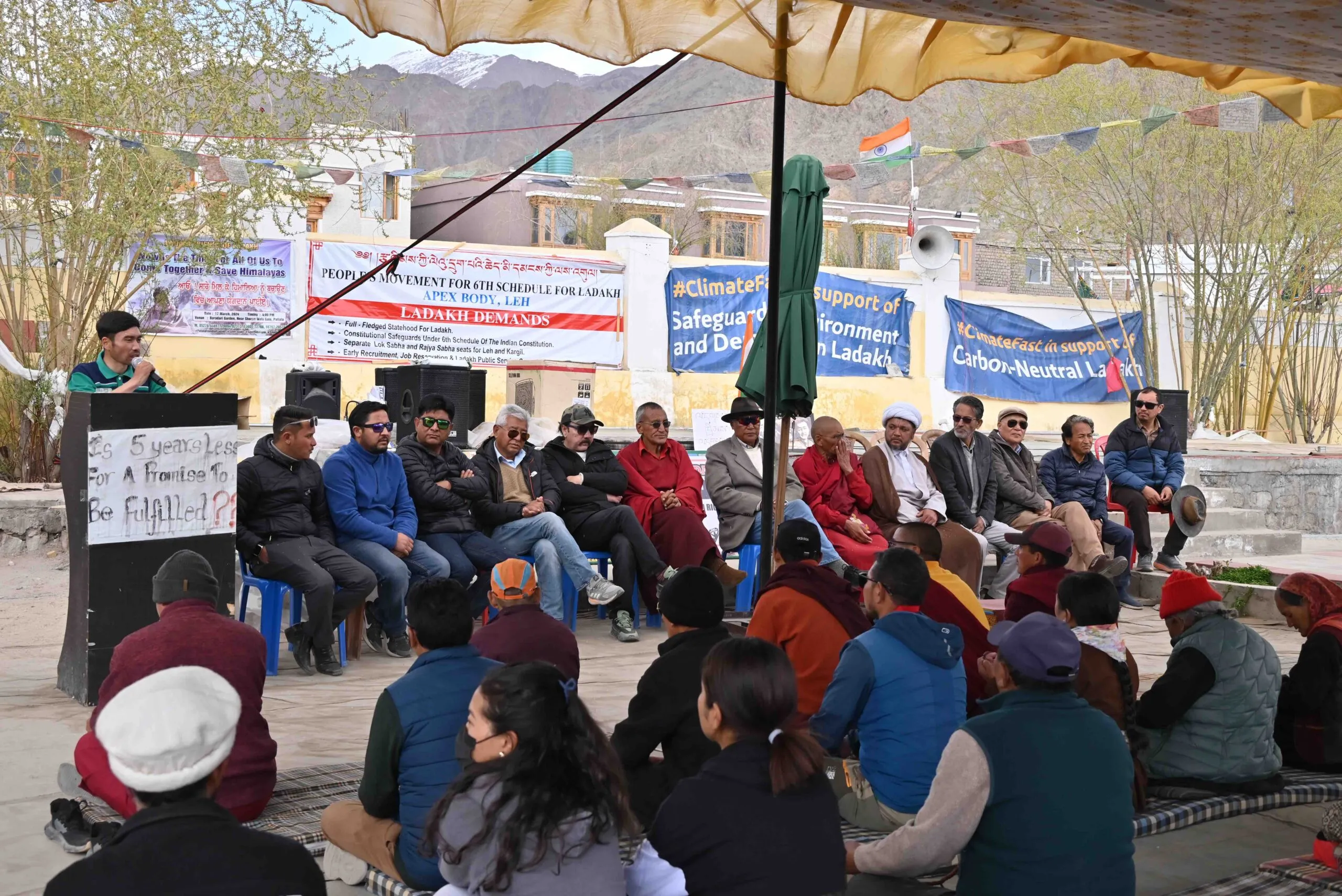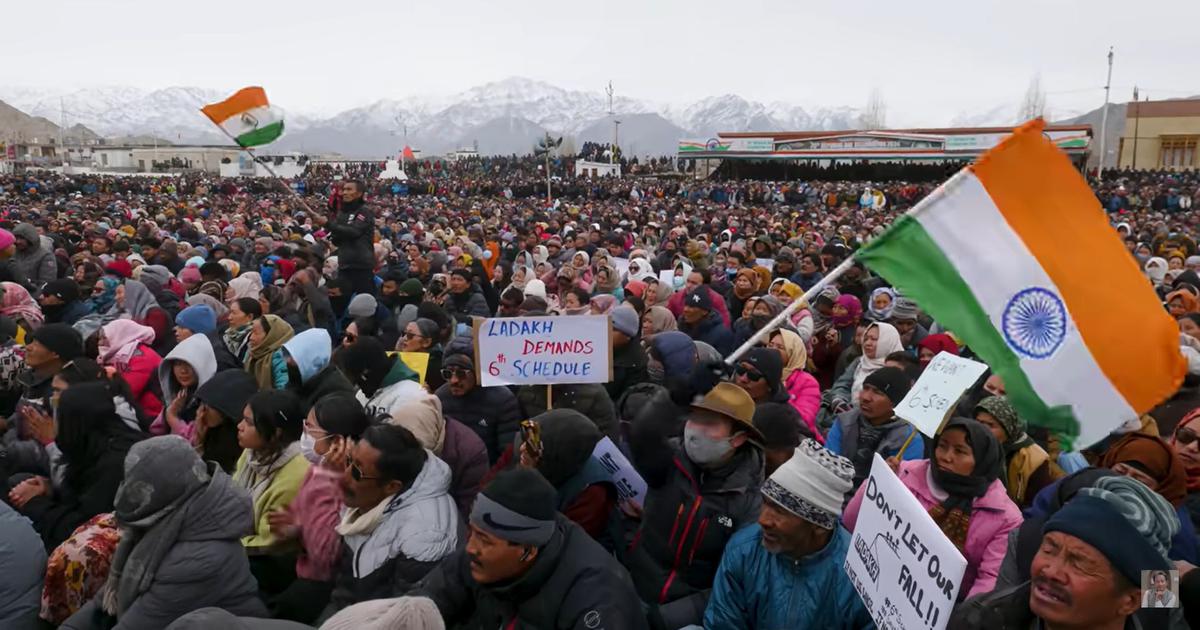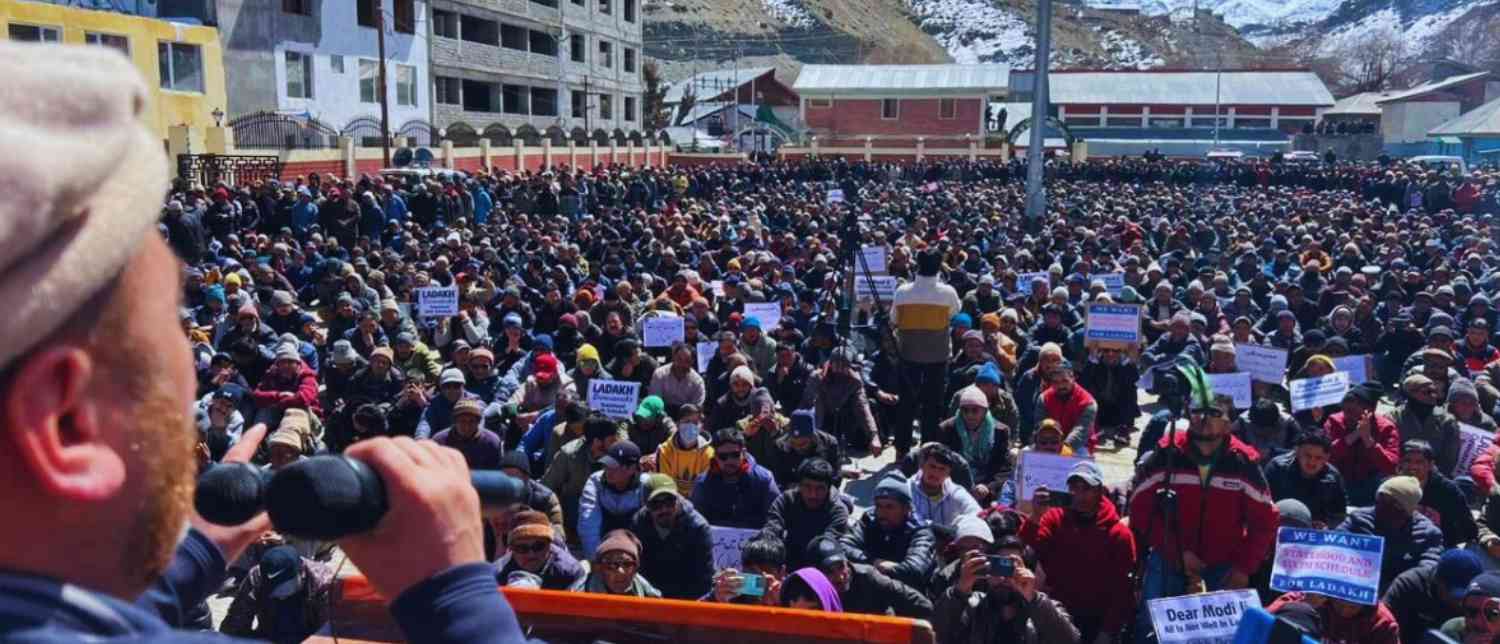The recent developments in Ladakh have taken a serious turn as groups from the region have refused to engage in talks with the central government, despite the government’s insistence that dialogue remains open. The Leh Apex Body (LAB), representing the Buddhist-majority region of Leh, made the announcement following large-scale unrest and violence during protests demanding statehood and special constitutional protections. These protests, especially the tragic events of September 24 when four protesters lost their lives after police firing, have fueled anger, grief, and fear among the local population, leading to the current impasse.

The Leh Apex Body has stated that they will not participate in any government-led talks until several conditions are met. These include the restoration of peace and a conducive atmosphere in Ladakh, the withdrawal of police action and cases against protesters, the release of detained activists including prominent climate activist Sonam Wangchuk, and a judicial inquiry into the police firing that caused the deaths of four young people. The LAB sees these as necessary steps to build trust before any meaningful negotiations can proceed.
From the government side, especially the Ministry of Home Affairs, the position remains firm that dialogue channels remain open "at any time" for discussion with the Leh Apex Body and the Kargil Democratic Alliance (KDA), which represents another region in Ladakh. The government had previously invited both bodies for talks scheduled in early October but respected the LAB’s decision to withdraw, emphasising that peace and normalcy remain prerequisites for engagement. The Ministry has also highlighted that efforts to address Ladakh’s unique cultural identity, economic empowerment, and political representation have been ongoing through various committees.

This deadlock highlights the complex nature of Ladakh’s demands and the sensitivities involved. The key issues centre on the call for Ladakh to be granted statehood status and the extension of the Sixth Schedule of the Indian Constitution to protect the distinctive cultural and ethnic identity of the people. The Sixth Schedule grants autonomous administrative powers intended to safeguard tribal populations, and its extension to Ladakh is a demand rooted in the desire for greater local control and protection.
The protests and resulting violence revealed a volatile atmosphere, with the local community feeling misunderstood and unheard in their demands. The opposition to government talks under current conditions reflects a deep mistrust and perception that justice has not been adequately pursued. While the government insists that negotiation doors are open and efforts continue behind the scenes, the immediate priority from the groups’ perspective remains peace, justice, and addressing the grievances transparently.
In a broader perspective, the situation in Ladakh is a reflection of long-standing challenges in addressing regional aspirations within India’s federal structure. Balancing local demands for identity, autonomy, and governance with national unity and administrative coherence is a complex and delicate task. The Ladakh case underlines how dialogue, while crucial, must be accompanied by trust-building measures and tangible actions to create a conducive atmosphere for negotiations.

In conclusion, the current stalemate between Ladakh groups and the central government shows that dialogue by itself is not sufficient unless accompanied by mutual confidence and addressing core grievances. Both sides express willingness to resolve the issues but remain divided on the conditions under which talks can proceed. The coming weeks will be crucial in determining whether the situation in Ladakh moves towards peaceful resolution or further tension. For now, the priority remains restoring normalcy and ensuring that voices on all sides are heard respectfully and constructively.
With inputs from agencies
Image Source: Multiple agencies
© Copyright 2025. All Rights Reserved. Powered by Vygr Media.























